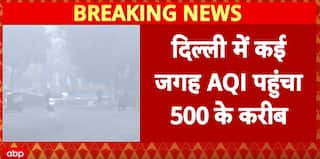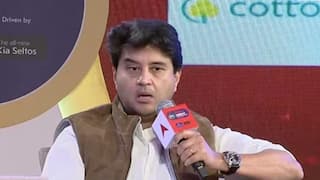Unifying Taxes For A Greener Future: How GST Is Driving The Adoption Of Electric Vehicles In India
The recent Union Budget of 2023 earmarked a staggering Rs 40,000 crore (approximately $5.3 billion) for electric vehicle infrastructure development

By Tushar Chhabhaya
With the global EV market projected to flourish in the years ahead, government policies and incentives will play a pivotal role in accelerating the adoption of electric vehicles. In India, the government laid the foundation for this shift back in 2015 with the Faster Adoption and Manufacturing of Electric Vehicles (FAME) scheme, offering incentives to EV manufacturers and buyers. This visionary programme has been extended several times and has become a crucial catalyst for the growth of the EV industry in India.
Setting its sights on a sustainable tomorrow, the government has diligently worked towards establishing a robust network of charging stations and enticing private players to invest in charging infrastructure. The recent Union Budget of 2023 earmarked a staggering Rs 40,000 crore (approximately $5.3 billion) for electric vehicle infrastructure development. This ambitious endeavor aims to dot the landscape with public charging stations every 25 kilometers on highways and a mere three kilometers apart in cities and towns.
With unwavering support from the Union Budget 2023, the Indian EV industry is primed for a meteoric rise. The allocation of Rs 40,000 crore for EV infrastructure, along with a reduced GST on EVs and a voluntary scrappage policy to encourage EV adoption, lays the groundwork for cost-effective EVs, a robust charging network, and the triumph of cleaner energy in India.
The slashing of the GST on electric vehicles from 12 per cent to a mere 5 per cent marks a transformative milestone in the government's commitment to sustainable mobility. This substantial reduction not only makes EVs more budget-friendly for consumers but also ignites a fresh spark of interest among manufacturers keen on investing in electric mobility. In a price-sensitive market like India, this GST revision emerges as a decisive push in favor of electric vehicles.
Innovatively, the voluntary scrappage policy introduced in the Union Budget 2023 nudges vehicle owners to part ways with their old, polluting vehicles. In exchange, they receive attractive incentives that can be channeled toward purchasing a brand-new electric vehicle. This thoughtfully designed policy not only encourages the retirement of fossil fuel-dependent vehicles but also curtails vehicular pollution, mitigating its impact on the environment.
The massive Rs 40,000 crore allocation for EV infrastructure stands as a game-changer in itself. By establishing a widespread network of charging stations along highways and within city limits, range anxiety becomes a thing of the past. With charging facilities readily available, consumers can confidently embrace electric vehicles, accelerating the transition to sustainable mobility.
As the Indian government harmonises taxes and bolsters the EV ecosystem with these groundbreaking policies, the automotive industry braces for a revolutionary shift. The reduced GST on electric vehicles will undoubtedly galvanize consumers, fueling demand for EVs and propelling the electric mobility revolution.
The substantial investment in EV infrastructure will lay the groundwork for a robust charging network, providing a strong backbone to support electric vehicle growth across the nation. This holistic approach not only nurtures the EV industry but also resonates with India's commitment to curbing greenhouse gas emissions and combating climate change.
The reduction in GST on EVs, the innovative voluntary scrappage policy, and the substantial investment in EV infrastructure together form the bedrock for driving electric vehicle adoption in the country. As these visionary initiatives gain momentum, India's automotive landscape is destined to undergo a paradigm shift - one that embraces sustainability, propels green innovation, and creates a brighter tomorrow for generations to come.
The writer is the director of Aarya Automobiles.
[Disclaimer: The opinions, beliefs, and views expressed by the various authors and forum participants on this website are personal and do not reflect the opinions, beliefs, and views of ABP News Network Pvt Ltd.]






































